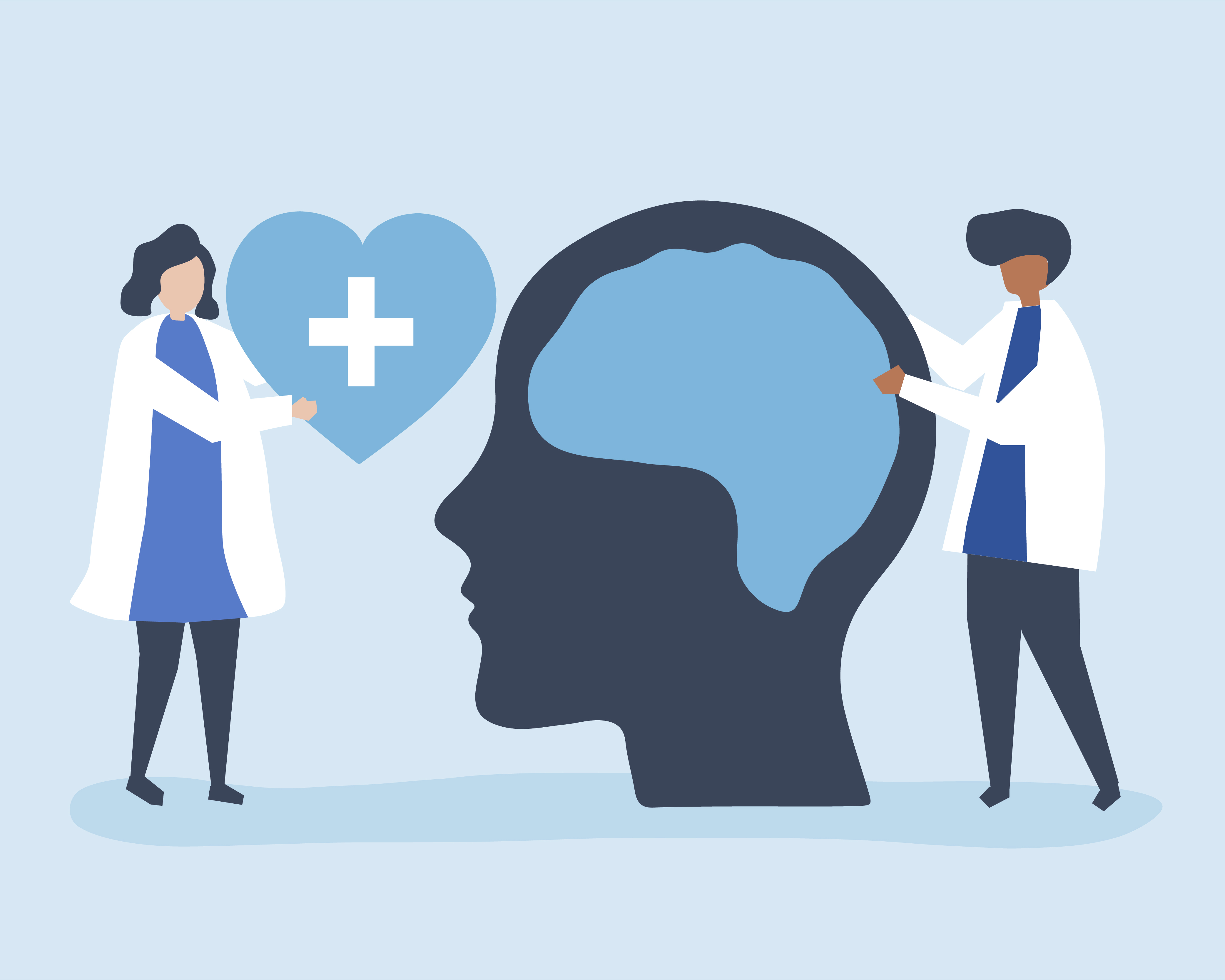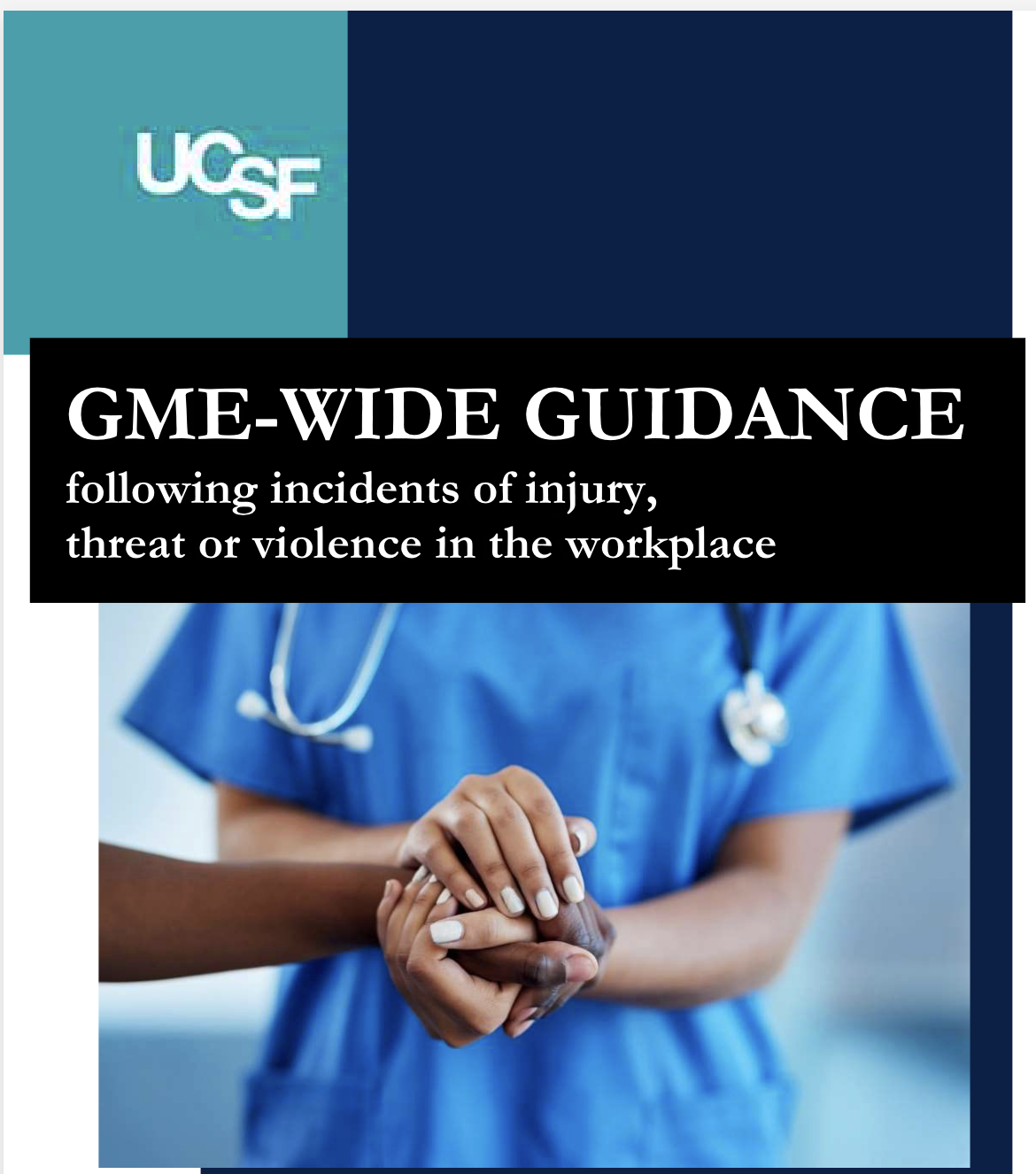Well-Being

Well-Being and Mental Health Resources for Residents and Fellows
Emergency and Crisis Mental Health Services
| Police or Medical Emergency | Call the UCSF Police Department at 911 or (415) 476-6911 |
| Person of Concern is Unreachable | Call the UCSF Police Department for a welfare check at (415) 476-HEAL (4235) |
| Emergent Mental Health Support |
Call National Mental Health Crisis Line 988 or San Francisco Crisis Line (24/7 support, (415) 781-0500 or text CRISIS to (415) 200-2920) |
Urgent and Important Mental Health Services
| Need | Resource | What It Is |
Contact Information |
|---|---|---|---|
| Urgent (not emergent) Psychiatric Care Needed After Hours | ProtoCall Services |
24/7 urgent telephone mental health support for residents and fellows
|
|
| Local Emotional and Mental Health Support | The UCSF Faculty and Staff Assistance Program (FSAP) |
Confidential employee assistance services at no cost to UCSF faculty, staff, post-docs, residents, and fellows
|
|
| Mental Health Insurance Benefits |
The resident and fellow HMO and PPO health insurance plans |
|
Email: [email protected]
For assistance locating Anthem in-network mental health care providers or in-person care, access UCSF Cope Mental Health Program navigators: https://hr.ucsf.edu/wellbeing/coping-and-resiliency-program |
Resources to report or get support for mistreatment
| Resource | Description | Contact Information |
|---|---|---|
|
Report Concerns Regarding Mistreatment |
|
|
| Discuss Issues with the Office of GME |
|
|
| Discuss Campus-Related Issues with Ombuds |
|
|
| Report Discrimination or Harassment |
|
|
| Receive support for discrimination, harassment, or interpersonal violence |
|
|
Connect with a GME Peer Support Ambassador
| GME Peer Support Ambassadors |
|
|
Additional Support Services and Resources
| Resource | Description | Contact Information |
|---|---|---|
| UCSF Spiritual Care Services | Chaplain services for staff, teams, and patients. |
|
| Campus MyWellness Resource Hub | Resources and events to support wellness across the UCSF campus. |
|
| UCSF Campus Life Services | Information about events and services to support work-life integration at UCSF. |
|
| Accessibility and Accommodations at UCSF | FAQ about accommodations through Disability Management Services and Resident and Fellow's guide to the Interactive Process | |
| Lactation Support for Residents and Fellows |
Information on campus-level support for lactating trainees and staff Information about lactation accommodation and support Find a lactation room |
|
| National Academy of Medicine Action Collaborative on Clinician Well-being and Resilience |
A website with resources to support individual clinicians and promote system change for well-being.
|
|
|
UCSF Coping and Resiliency Program Self-Care Resources |
A UCSF website with self-guided resources to support your mental health during challenging times. |
|
Self-Screening Tool
An online well-being self-screening tool, a well-Being index, is available to all UCSF residents and fellows. The Well-Being Index is a validated tool that helps you better understand your overall well-being and areas of risk compared to other residents and fellows from around the country. This tool is anonymous and your scores are not shared with anyone, including anyone at UCSF. Well-Being Index
Following Incidents of Injury, Threat or Violence in the Workplace
This guidance to be used following incidents of injury, threat or violence in the workplace has been carefully crafted to help trainees navigate the complexities of handling incidents of threat, violence, or injury at work. It's important to recognize that the steps for residents and fellows sometimes differ from other hospital staff (e.g., nurses, etc.) due to the unique nature of your training and specific health and disability coverage. Your safety and well-being are our top prioirities and your input is valuable in ensuring this document remains effective and pertinent. We welcome any feedback or suggestions you might have for future updates. Please send any questions or suggestions to Glenn Rosenbluth and Diana (Dee) Martinez.
A Map of UCSF GME Well-being Resources
Whether you are looking for resources for individual mental health or peer support for residents and fellows or want to report or get support for discrimination, harassment or other mistreatment, this guide presents the appropriate resources to address these types of concerns.


